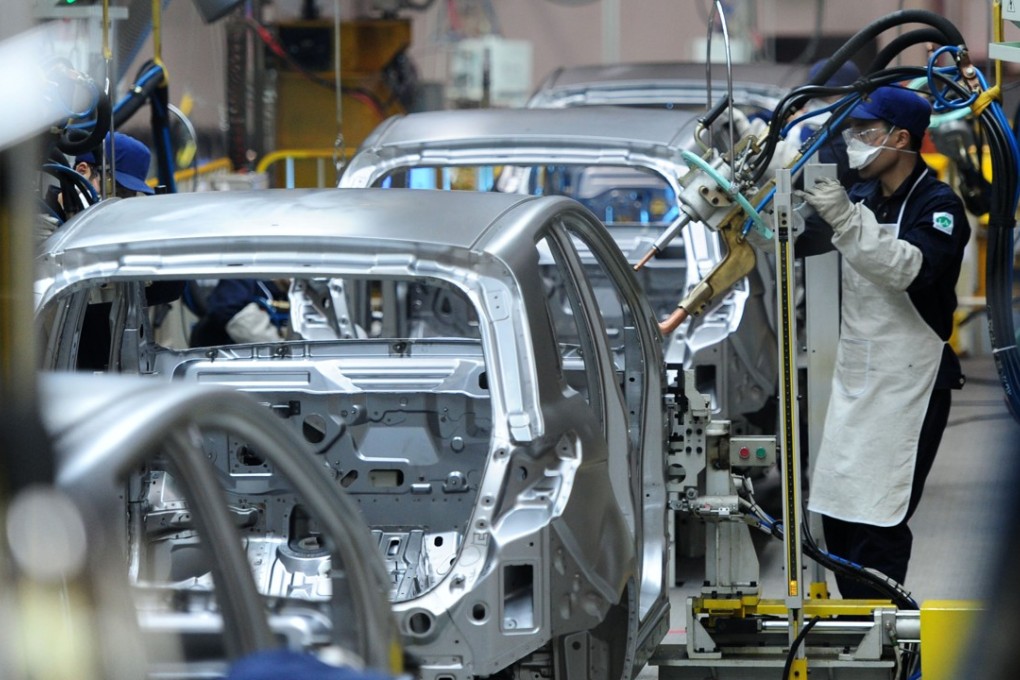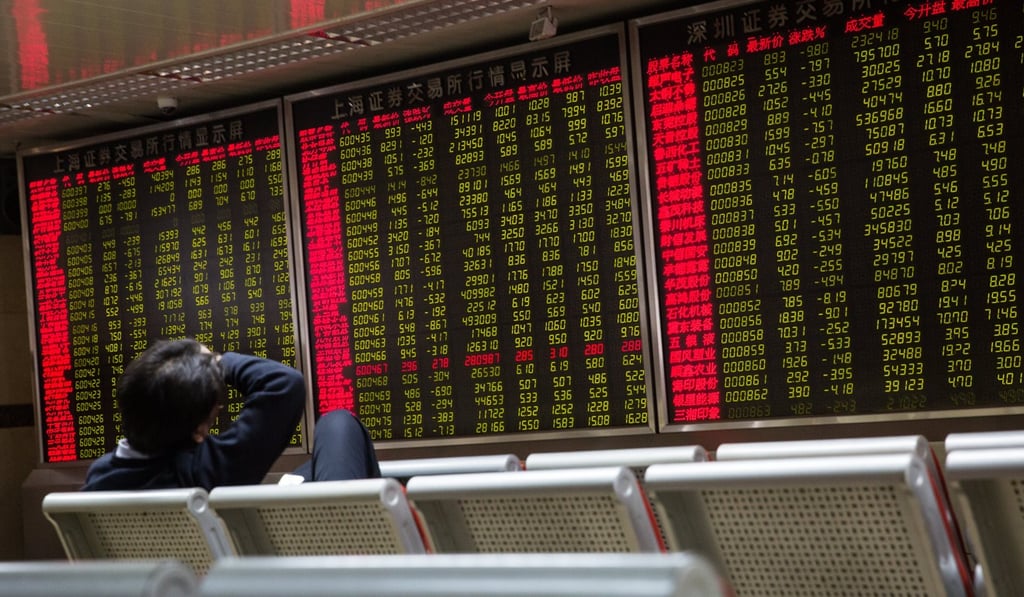Chinese car stocks struggle as Beijing moves to fully open market to foreign companies
Credit Suisse and Jefferies slashes stock price targets of major players in anticipation of reduced bargaining power for local partners following policy changes

Chinese carmaker stocks took a broad beating on Wednesday in Hong Kong and Shanghai,with BAIC Motor and Brilliance Auto leading losses, after China announced plans to fully open up the market to foreign ventures over the next five years, a move seen as easing trade tensions with the US.
On the Hong Kong stock exchange, BAIC Motor dived 10.2 per cent to close at HK$8.02, Brilliance China Automotive Holding plummeted 9.4 per cent to HK$12.90, and Guangzhou Automobile Group lost 10.7 per cent to HK$12.90. Dongfeng Motor Group fell 4 per cent to HK$8.27, Geely Automobile Holdings dropped 2.5 per cent to HK$21.85, while Great Wall Motors fell 1.1 per cent to HK$7.48.

In Shanghai, Guangzhou Auto’s A shares sank 8.4 per cent to end at 17.33 yuan. Huayu Automotive Systems and Zhengzhou Yutong Bus fell2.2 per cent and 3.9 per cent, trading at 22.03 yuan and 21.24 yuan respectively.
On Tuesday, the National Development and Reform Commission, China’s top economic planner, said it will phase out rules requiring foreign carmakers to partner with a local firm to set up a factory in China in the next five years. For electric-vehicle joint ventures (JV), foreign ownership caps will be scrapped within this year. Regulations concerning commercial vehicles and passenger vehicles will be removed by 2020 and 2022 respectively.